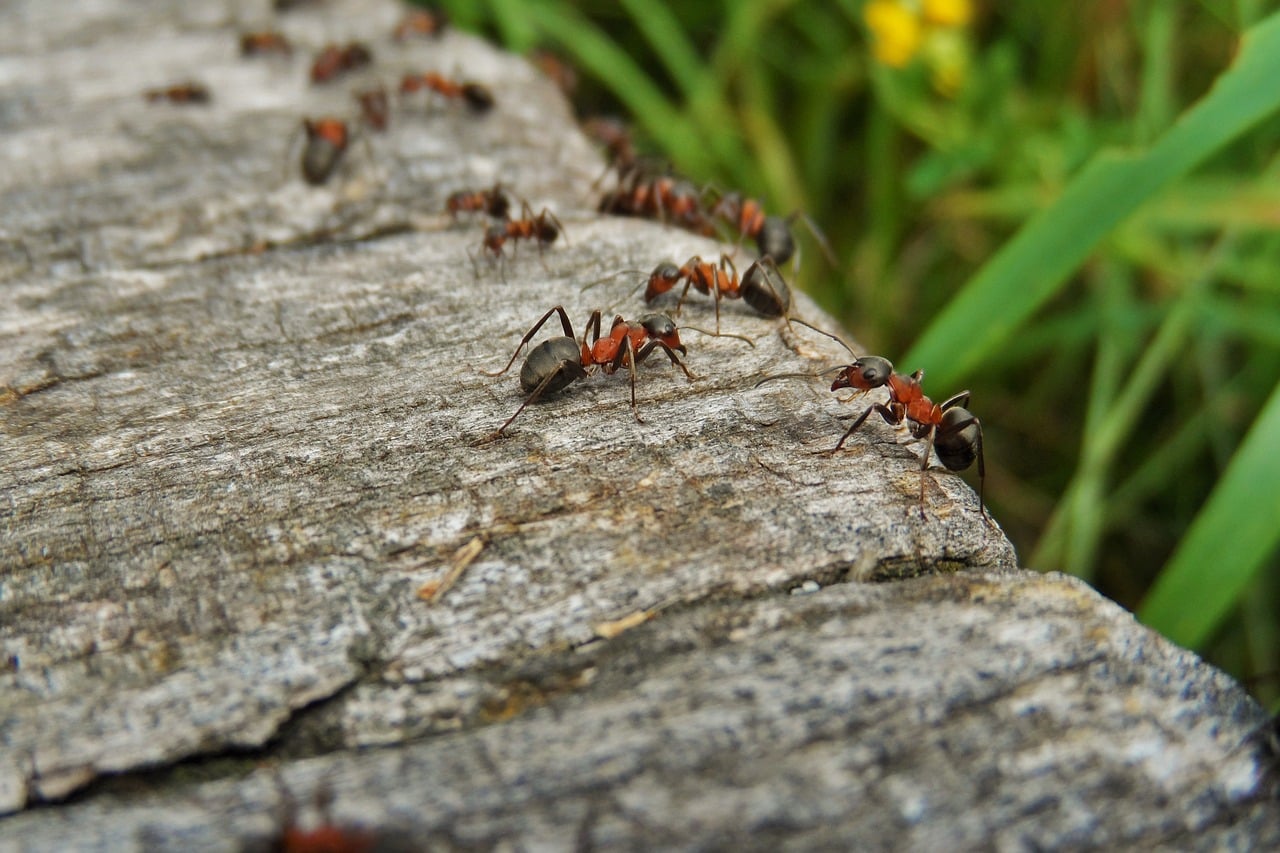Ants are amazing creatures. Think about it. They live in large, complex colonies, they are hardworking creatures, and they can even carry loads up to a hundred times their weight!
Ants are generally beneficial to your garden. Being natural predators, they can hunt other insects or pests that are in your garden or lawn. Ants also aid in pollination when they are foraging. They simply hunt and go about their task without being a nuisance.
However, during summer, homeowners may notice a surge in the number of ants crawling around their garden. During colder months you only see them outside. But when the warm days arrive, ants can infiltrate your home, and you may find them on your kitchen counters, inside your cupboards and other places where they search for food.
This is when some practical knowledge on how to get rid of ants can come in handy. Don’t immediately resort to calling the exterminators. After all, there are techniques you can use at home that control the number of these creatures.
Ants in the garden
If you’re a homeowner with an outdoor space, you would likely think, ‘Can ants damage my garden?’ The answer is, not always. In fact, ants can be helpful in maintaining it.
As mentioned, they eat other insects, therefore reducing the number of pests in the garden. However, ants also build nests around the roots of plants, which can hinder plant growth and make it vulnerable to pests and diseases.
Moreover, some ant species protect aphids from other predators like ladybirds. Why? Because ants eat honeydew, the liquid secreted by aphids when they themselves eat plants. And you know all too well that aphids are harmful for plants as they are sap-sucking insects that can drain leaves of their moisture and stunt the growth of your flowering plants and shrubs.
So, while ants may not directly act as pests and destroy your foliage, they can still damage your garden by disrupting root growth and letting aphids go rampant.
How to get rid of ants
First thing to do is to find out where these ants are concentrating within the garden. Check the soil. If there are too many ants in the soil, chances are they have already built their nests underneath the land, stunting your plant roots. Once this happens, it’s time to get rid of the entire ant source.
Here are a few natural methods that you can try:
Boiling water
This is the most commonly used natural method to get rid of ants. When you have located the ant nest, pour boiling water inside. Remember that an ant nest can have a number of entrances, so it’s best if you observe the ants’ movement first and pour water into these locations. Do this a couple of times until there are no more ants coming from or going to the source.
Boric acid and sugar
For this formula, just mix boric acid and sugar until you get a paste-like consistency. Then, place small amounts of this paste around the ant nest. The sugar will attract the ants, and they will carry the paste back to the nest. The boric acid will work after a few minutes, exterminating the queen and the rest of the ants.
Dishwashing liquid and oil
Mix ½ teaspoon of dishwashing liquid with 1 ½ teaspoons of cooking oil, preferably olive oil or canola oil, and some water. Pour this mixture over the ant nest you’ve located. You can also use this to spray directly on crawling ants. The mixture suffocates the ants and kills them right away.
White vinegar
Pour about a litre of white vinegar directly on the nest. While the ants won’t be instantly killed, the smell will force them to leave the nest, which will cause them to eventually starve to death. You can also use a vinegar solution where you mix one part water to two parts vinegar. Use this solution to spray around your plants, and even inside your home. What’s great about vinegar is that it’s bad for ants, but it’s not harmful to your plants.
Nematodes
Nematodes are microscopic worms that naturally occur in soil and are used to control soil pests. Beneficial nematodes fight ants by hunting and devouring any ants that are nearby.
To use them, put the nematodes in a bucket of water. Break up the lumps and let it soak for a few minutes. Use a watering can, knapsack sprayer or a hose-end sprayer to sprinkle the solution onto your soil and plants. These natural predators will drive away the ants in your lawn without causing any health or environmental risks to your home. And aside from ants, other pests and insects (e.g., beetles, fungi) will also be destroyed.
Always make sure to follow the package instructions when you’re using nematodes, because formulations vary depending on the insect. They can be stored in the refrigerator for about a month, but once mixed with water, they can no longer be stored.
Diatomaceous earth (DE)
Diatomaceous earth (DE) is a powdery substance made of fossilized diatoms, a type of hard-shelled aquatic organism. Food-grade DE is actually used for detoxifying the body and purifying water, but it can also be very effective against insects, including ants.
To use it, sprinkle the ant’s path with the food grade DE powder. It works best if the soil is dry, because the wetter the soil, the longer it will take for the DE to take effect.
Insect-repelling plants
You can get rid of ants by adding some herbs to your garden. Rosemary, chamomile, chives, catnip and peppermint naturally repel ants. You can put an assortment of insect-repelling plants in your garden bed or lawn to keep your other greenery protected.
These natural ant removal techniques will help you get rid of an ant infestation in your garden. Try any of these first before resorting to commercial ant treatments. With these techniques, your garden will be ant-free and toxin-free.

 " data-orig-src="/wp-content/uploads/2018/08/ants-in-the-garden.jpg" data-srcset="/wp-content/uploads/2018/08/ants-in-the-garden-200x133.jpg 200w, /wp-content/uploads/2018/08/ants-in-the-garden-400x267.jpg 400w, /wp-content/uploads/2018/08/ants-in-the-garden-600x400.jpg 600w, /wp-content/uploads/2018/08/ants-in-the-garden-800x533.jpg 800w, /wp-content/uploads/2018/08/ants-in-the-garden-1200x800.jpg 1200w, /wp-content/uploads/2018/08/ants-in-the-garden.jpg 1280w" data-sizes="auto" />
" data-orig-src="/wp-content/uploads/2018/08/ants-in-the-garden.jpg" data-srcset="/wp-content/uploads/2018/08/ants-in-the-garden-200x133.jpg 200w, /wp-content/uploads/2018/08/ants-in-the-garden-400x267.jpg 400w, /wp-content/uploads/2018/08/ants-in-the-garden-600x400.jpg 600w, /wp-content/uploads/2018/08/ants-in-the-garden-800x533.jpg 800w, /wp-content/uploads/2018/08/ants-in-the-garden-1200x800.jpg 1200w, /wp-content/uploads/2018/08/ants-in-the-garden.jpg 1280w" data-sizes="auto" /> 


